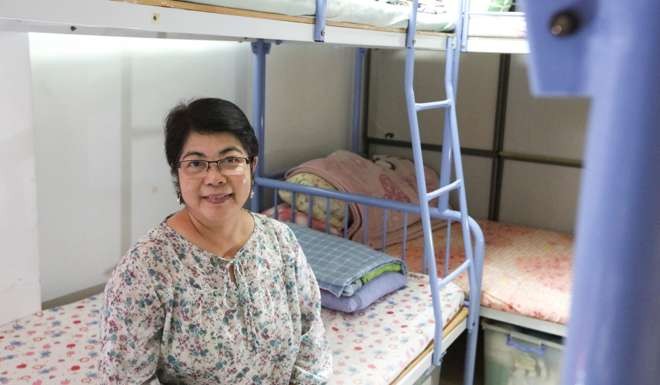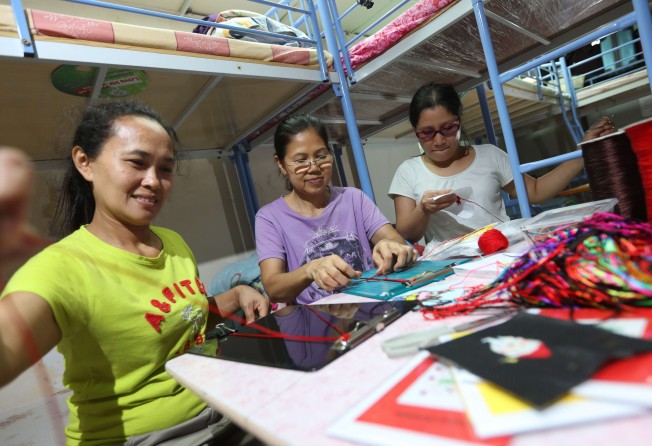
Migrant charity offers lifeline to Hong Kong’s domestic helpers
Bethune House Migrant Women’s Refuge supports helpers in times of crisis, providing them with emergency food and accommodation

Domestic helper Annalyn Dionio is in limbo.
The 36-year-old Filipino, a former hotel worker, has been sacked by her employer, a local Chinese family, after taking a trip home in September to visit her sick mother in hospital.
When she returned to Hong Kong, where she has worked for seven years, she was shocked to hear from officials at Hong Kong International Airport that her working visa was no longer valid and her long-term future in the country was under threat.
Friends advised her to seek help from Bethune House Migrant Women’s Refuge. The charity, a beneficiary of Operation Santa Claus, supports domestic helpers in times of crisis, providing them with emergency food and accommodation.
In Sheung Wan, at one of the charity’s two hostels, she shares a room with several other women facing similar battles, including domestic abuse by their employers. They have been waiting to have their cases heard at a tribunal or criminal court.
“It is a trauma,” Dionio said tearfully. “Some of my previous employers were not like this.”
She said that while she was employed by the family, the mother was “always finding fault” with her work and appeared jealous of her close relationship with their nine-year-old son.
She said returning home was simply not an option, as work was scarce and badly paid.
“If I had the chance to work in the Philippines then I would,” she said.

Edwina Antonio, Bethune House’s executive director, said Dionio could be waiting up to two months to learn the outcome of her case. Even if her former employer was found to have dismissed her unfairly and made to pay her unpaid wages, she may have to return to the Philippines before she can take up a new job in Hong Kong.
Domestic helpers are still subject to the two-week rule, a government regulation condemned by the United Nations, which states they can only stay unemployed in Hong Kong for 14 days between employment contracts, or they must leave the city.
But the Immigration Department must extend the visitor’s visa if they contest their dismissal by their employer at court. However each time they extend their stay, Bethune or the claimant must pay HK$190.
Antonio emphasised that her charity, which employs just a few full-time workers and is supported by volunteers, never turned people away even if they referred them to other charities or NGOs. She said they took a “holistic approach” to their clients’ well-being, offering them life skill classes such as cooking and sewing during their stay.
“We encourage them to get into all these activities, because we want them to learn something,” she said. “We want our service to be empowering, not just doled out.”
Founded in 1981, Bethune House is the longest-existing independent service provider for migrants in Hong Kong and Asia.
It has formerly housed Indonesian domestic helpers Erwiana Sulistyaningsih and Eni Lestari, who were both exploited and in the former’s case abused by their Hong Kong employers. Sulistyaningsih has become a leading campaigner for domestic helper rights and was included in Time magazine’s 100 Most Influential People in 2014. Meanwhile Lestari has gone on to chair the International Migrants Alliance and even gave a speech about the plight of the world’s migrants to the United Nations General Assembly this year.
Antonio hopes the charity, which offers a maximum of 16 spaces in Jordan and 14 spaces in Sheung Wan if the women share beds, will eventually be able to rent a bigger shelter.
But she stressed that money was always tight.
“We rely on donations and grants,” she said. “Every year we have to raise funds.”